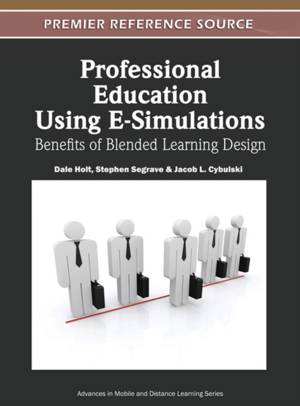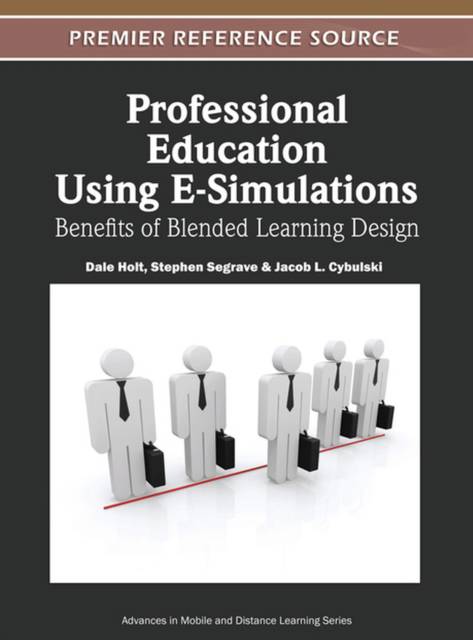
- Afhalen na 1 uur in een winkel met voorraad
- Gratis thuislevering in België vanaf € 30
- Ruim aanbod met 7 miljoen producten
- Afhalen na 1 uur in een winkel met voorraad
- Gratis thuislevering in België vanaf € 30
- Ruim aanbod met 7 miljoen producten
Zoeken
Professional Education Using E-Simulations
Benefits of Blended Learning Design
€ 281,95
+ 563 punten
Omschrijving
The use of digital, Web-based simulations for education and training in the workplace is a significant, emerging innovation requiring immediate attention. A convergence of new educational needs, theories of learning, and role-based simulation technologies points to educators' readiness for e-simulations. As modern e-simulations aim at integration into blended learning environments, they promote rich experiential, constructivist learning. Professional Education Using E-Simulations: Benefits of Blended Learning Design contains a broad range of theoretical perspectives on, and practical illustrations of, the field of e-simulations for educating the professions in blended learning environments. Readers will see authors articulate various views on the nature of professions and professionalism, the nature and roles that various types of e-simulations play in contributing to developing an array of professional capabilities, and various viewpoints on how e-simulations as an integral component of blended learning environments can be conceived, enacted, evaluated, and researched.
Specificaties
Betrokkenen
- Uitgeverij:
Inhoud
- Aantal bladzijden:
- 454
- Taal:
- Engels
- Reeks:
Eigenschappen
- Productcode (EAN):
- 9781613501894
- Verschijningsdatum:
- 30/09/2011
- Uitvoering:
- Hardcover
- Formaat:
- Genaaid
- Afmetingen:
- 216 mm x 279 mm
- Gewicht:
- 1333 g

Alleen bij Standaard Boekhandel
+ 563 punten op je klantenkaart van Standaard Boekhandel
Beoordelingen
We publiceren alleen reviews die voldoen aan de voorwaarden voor reviews. Bekijk onze voorwaarden voor reviews.










